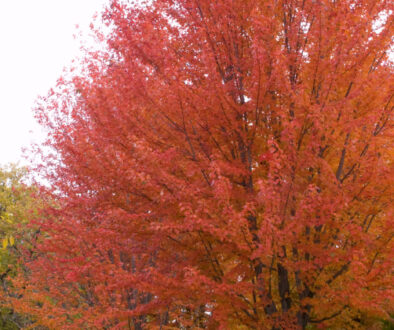Do Forests Make Us Healthier?
Do Forests Make Us Healthier
Numerous studies in the U.S. and around the world are exploring the health benefits of spending time outside in nature, green spaces, and, specifically, forests.
Research is casting light on how spending time outdoors and in forests makes us healthier:
Exposure to forests boosts our immune system. While we breathe in the fresh air, we breathe in phytoncides, airborne chemicals that plants give off to protect themselves from insects. Phytoncides have antibacterial and antifungal qualities which help plants fight disease. When people breathe in these chemicals, our bodies respond by increasing the number and activity of a type of white blood cell called natural killer cells or NK. These cells kill tumor- and virus-infected cells in our bodies. In one study, increased NK activity from a 3-day, 2-night forest bathing trip that lasted for more than 30 days. Japanese researchers are currently exploring whether exposure to forests can help prevent certain kinds of cancer.
Spending time around trees and looking at trees reduces stress, lowers blood pressure, and improves mood. Numerous studies show that both exercising in forests and simply sitting looking at trees reduce blood pressure as well as the stress-related hormones cortisol and adrenaline. Looking at pictures of trees has a similar, but less dramatic, effect. Studies examining the same activities in urban, unplanted areas showed no reduction of stress-related effects. Using the Profile of Mood States test, researchers found that forest bathing trips significantly decreased the scores for anxiety, depression, anger, confusion, and fatigue. And because stress inhibits the immune system, the stress-reduction benefits of forests are further magnified.
Green spaces in urban areas are just as important as rural forests. About 85% of the US population lives in suburban and urban areas and may not have access to traditional rural forests. That’s O.K. Gardens, parks, and street trees make up what is called an urban and community forest. These pockets of green space are vitally important because they are the sources of our daily access to trees.
Spending time in nature helps you focus. Our lives are busier than ever with jobs, school, and family life. Trying to focus on many activities or even a single thing for long periods of time can mentally drain us, a phenomenon called Directed Attention Fatigue. Spending time in nature, looking at plants, water, birds, and other aspects of nature gives the cognitive portion of our brain a break, allowing us to focus better and renew our ability to be patient.
In children, attention fatigue causes an inability to pay attention and control impulses. The part of the brain affected by attention fatigue (right prefrontal cortex) is also involved in Attention-Deficit/Hyperactivity Disorder (ADHD). Studies show that children who spend time in natural outdoor environments have a reduction in attention fatigue and children diagnosed with ADHD show a reduction in related symptoms. Researchers are investigating the use of natural outdoor environments to supplement current approaches to managing ADHD. Such an approach has the advantages of being widely accessible, inexpensive, and free of side effects.
Patients recover from surgery faster and better when they have a “green” view. Hospital patients may be stressed from a variety of factors, including pain, fear, and disruption of normal routine. The research found that patients with “green” views had shorter postoperative stays, took fewer painkillers, and had slightly fewer postsurgical complications compared to those who had no view or a view of a cement wall.
More Research is Needed
While the research in Japan is groundbreaking, we need more research on trees growing in the Northeastern US. We share some of the same genera with Japan, like pine, birch, and oak, which all give off different phytoncides, but we have different species. The more we know about our local trees, the more applicable the science will be.
Call us for tree consultation at 608 526-6297. Stop by and check out our selection of Legacy trees




